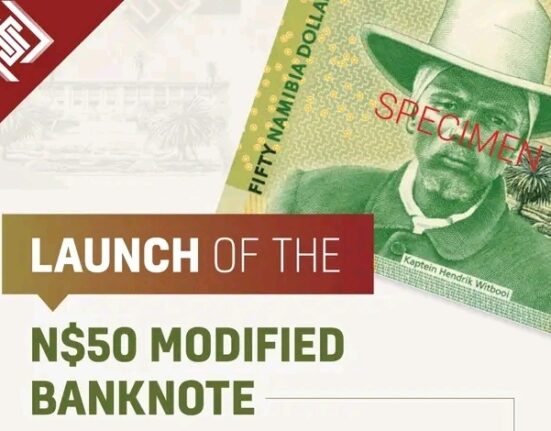Namibia is home to a vibrant music scene, and one of the most influential figures in its musical evolution is The Dogg, a name that resonates across the African music landscape. Known as the “Kwaito King” of Namibia, The Dogg has not only shaped the Namibian music industry but also earned a dedicated following both locally and internationally. This article delves into The Dogg’s musical journey, his impact on Namibian culture, and his lasting legacy in the African music world.
Early Life and Background
Born as Martin Morocky on June 2, 1983, in Namibia, The Dogg’s passion for music began at an early age. Growing up in Windhoek, he was exposed to various genres of music, but it was Kwaito—a South African genre that combines house beats with hip-hop, reggae, and traditional African rhythms—that inspired him the most. His interest in Kwaito, combined with his love for local Namibian music, set the foundation for his eventual rise to stardom.
The Rise of The Dogg: Early Music Career
The Dogg’s musical journey began in the early 2000s, when he started recording and performing in his hometown. His early work was heavily influenced by the sounds of South Africa’s Kwaito artists, but he quickly began blending these influences with his own unique style, incorporating Namibian rhythms and languages into his songs. This fusion of local and international sounds marked the beginning of a new era in Namibian music.
In 2003, The Dogg’s debut album “Kwaito Life” was released, which introduced his distinctive style to the Namibian public. The album received widespread acclaim, and tracks like “Kwaito Life” and “Tsepo” became popular anthems in the local music scene. The Dogg’s ability to connect with his audience through relatable lyrics and energetic beats helped him gain significant recognition. The Kwaito culture, which had previously been more popular in South Africa, was now firmly established in Namibia, thanks in large part to The Dogg’s early contributions.
The Dogg’s Musical Evolution
As The Dogg’s career progressed, so did his music. Over the years, he experimented with different genres and sounds while staying true to his Kwaito roots. His second album, “Over the Top” (2007), marked a significant shift in his musical direction. While still deeply rooted in Kwaito, the album incorporated elements of hip-hop, house, and dancehall, further expanding The Dogg’s appeal to a broader audience.
In addition to his musical versatility, The Dogg’s lyrics also began to reflect a more mature and socially conscious perspective. Songs such as “Tura Boys,” which highlights the challenges faced by youth in Namibia’s informal settlements, and “Falling Apart,” which addresses personal struggles and societal issues, resonated with listeners who found The Dogg’s messages both relatable and inspiring.
The Dogg’s third album, “The Dogg’s Life” (2010), was another milestone in his career. The album featured collaborations with some of Africa’s top artists, including South Africa’s Mandoza and Kwesta. This international collaboration not only boosted The Dogg’s visibility but also solidified his position as one of Africa’s leading Kwaito artists. Tracks like “Bira” and “Ndini Wena” were huge hits, further cementing his status as a musical icon in Namibia and beyond.
The Dogg’s Impact on Namibian Music and Culture
Beyond his musical accomplishments, The Dogg has played a pivotal role in shaping the Namibian music scene. As one of the country’s most successful and influential musicians, he has paved the way for many young artists who look up to him as a role model. His success has also put Namibian music on the map, gaining recognition across Africa and even internationally.
The Dogg has been instrumental in promoting Namibian culture through his music. He often sings in indigenous Namibian languages such as Oshiwambo, Damara, and Herero, helping to preserve these languages while also making them accessible to a wider audience. His ability to blend African traditions with modern sounds has made his music relatable to both the older and younger generations.
His contribution to Namibia’s music industry extends beyond his personal success. As a mentor and philanthropist, The Dogg has helped nurture and promote new talent through his record label, Dogg’s World Entertainment. His commitment to developing the Namibian music industry has led to a flourishing of new artists who continue to make their mark on the continent.
Awards and Recognition
Throughout his career, The Dogg has received numerous awards and accolades, both in Namibia and internationally. Some of his most notable awards include the Namibian Music Awards (NMAs) for Best Male Artist and Best Kwaito Artist, as well as recognition at the South African Kwaito Music Awards.
His contributions to the music industry have earned him a place among Africa’s musical elite. In 2015, The Dogg was honored with a Lifetime Achievement Award at the Namibian Music Awards, acknowledging his impact on the development of Namibian music and his long-standing influence on the Kwaito genre.
The Dogg’s Legacy: A Lasting Influence
The Dogg’s legacy in the Namibian and African music industries is undeniable. His musical journey has not only shaped the Kwaito genre but has also contributed significantly to the globalization of African music. Through his bold experimentation with different sounds, meaningful lyrics, and cultural authenticity, The Dogg has inspired a new generation of artists who look to him as a blueprint for success.
Even as the music landscape continues to evolve, The Dogg remains a beloved figure in Namibian music. His influence extends beyond his records, as he continues to shape the future of Namibian music through his mentoring, collaborations, and cultural contributions. The Dogg’s story is a testament to the power of music in connecting people, inspiring change, and celebrating culture.
From his humble beginnings in Windhoek to becoming the Kwaito King of Namibia, The Dogg’s musical journey has been nothing short of remarkable. His contributions to the Namibian music scene have left an indelible mark on the country’s cultural fabric, and his legacy as a pioneer of the Kwaito genre will continue to inspire future generations. As The Dogg’s music continues to resonate with fans across Africa, his status as Namibia’s musical icon is firmly cemented.
With a career spanning over two decades, The Dogg remains a key figure in the African music industry, influencing not just Namibia but the entire continent. His journey is a celebration of the power of music to uplift, inspire, and unite people across cultures and borders.













